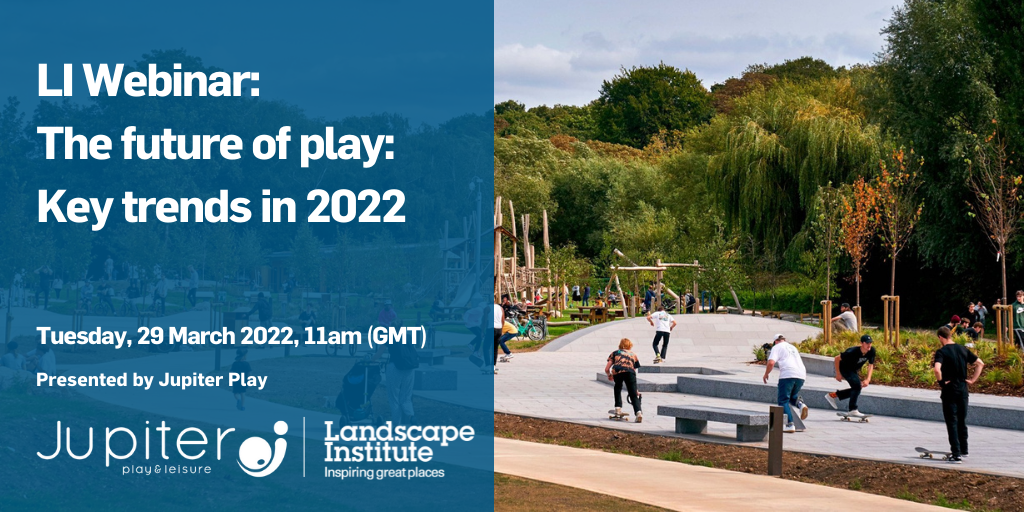Has the way children play evolved and does the landscape need to change with it? The topic of play is hugely complex and relates to so much more than the simplicity of a small child engaging in a recreational past time just for fun. In today’s high-pressured world, we always seek out the measured benefits of our activities and have lost sight of the wider subject of wellbeing; until the global pandemic hit. Pre 2020 there was already rising concern for our children spending too much time indoors, in particular; glued to a screen. This was exacerbated during the first lockdown, where families were confined to their homes and more reliant on the virtual world for learning and entertainment. The public realm in terms of green and urban space is now working harder for us than ever before. The pandemic reconnected so many people to the outside world, with every tiny pocket of space being utilised and new ways of exercising outdoors found.
With issues such as climate change, childhood obesity and the dying high-street being high on the agenda we have looked at how Play can help enhance our shared spaces for all and improve our community’s health and well-being. Alongside these issues, the rise of staycations and the renewed appreciation of green spaces have created a need for better facilities focused on families dwell time.
This webinar focused on the Future of Play in 2022 and beyond, firstly looking at the current built environment and considering areas of improvement then looking at the trends that will influence the landscape of play and finally showed how we can design with the future in mind through an outcome-led process.
The 5 Key Play Space Trends in 2022:
- Active Generations: The invisible benefit of play
- More Welcoming Spaces for All
- Rewilding of Spaces: Reconnecting people with nature
- Make Your Space an Attraction
- Enhancing The Urban Realm and The High St Revival
Blog author & Webinar Speaker: Rosie Mayer, Senior Designer & Bespoke Design Specialist, Jupiter Play
Rosie started working for Jupiter Play in 2016 and is Jupiter’s Creative Lead, with great working relationships between the international suppliers. Rosie leads on the strategic direction of Jupiter’s design and communications. She was awarded the Pro Landscaper 30 under 30 award, Class of 2020 after being nominated by her team. She has previously led on the design of Poole Park, which features bespoke elements based on Rosie’s amazing hand-drawn illustrations.
Michael has been in the play industry for nearly 30 years and has successfully established 3 businesses within the industry: all thriving today. Jupiter Play is a family business established in 1999 with a focus on delivering a consultative approach to play design and representing high quality brands in the industry, including our 10-year working relationship with FHS, bespoke Robinia design specialists (est.1984), Yalp interactives and Galopin.
Webinar Speaker: Michael Hoenigmann, Director, Jupiter Play
Michael also established the brand Inclusive Play in recognition that the play industry needed to do more for children with disabilities and is now an internationally recognised brand.

